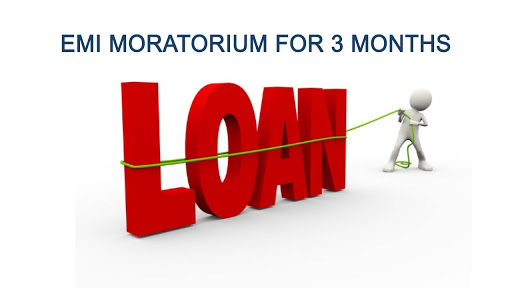
Amidst the pandemic, RBI has permitted banks to grant a moratorium (Deferment of EMI/interest) up to May 31, 2020, on payment of all installments between March 1, 2020, and May 31, 2020.
COVID-19 has affected the finances of people all over the globe, whether salaried or self-employed professionals, everyone is suffering in this financial crunch. In these crises, it’s difficult for all of us to pay loans. Thus, RBI has come up with a relaxation period to maintain cash flow in the middle-class people.
It’s a challenging period for both the lenders as well as borrowers. However, the moratorium gives some relaxation to the people trying to survive in these difficult times.
All the borrowers who have taken a loan from Housing Finance Companies (HFCs), Non-Banking Financial Companies (NBFCs) and All India Financial Institutions (AIFI), besides banks, can avail the benefits of the moratorium. It applies to home loans,
education loans, car loans, agricultural loans, personal loans, credit cards, etc.
The Pros and Cons of a moratorium:
It’s good news since you’re getting temporary relief from paying EMIs and enables you to allocate the funds towards personal expenses. Now, your loan profile won’t be blacklisted, bring in heavy penalties or affect your credit score.
The bad news is that you will end up paying a higher interest amount or pay more EMIs to repay your loan. We won’t say this as a profitable deal, but it can surely help during this period of a cash crunch.
We would recommend you to clear off your credit card bills as it charges a much higher interest rate as compared to other loans. If you have sufficient balance to pay your credit card monthly bill, then pay it right away. Remember, this is not a
loan waiver; the government has postponed their EMI payments for the ongoing loans. SBI has already announced to honour the RBI’s recommendation.
There are five things to remember:
- The moratorium provides a grace period to borrowers.
- If you opt for a moratorium, then get ready for the extension of your loan repayment tenure by a few months.
- Longer loan payment tenure means an increase in your interest or number of instalments.
- Never opt for deferring your EMI in case you’ve outstanding dues on your credit card.
- Seek advice from your bank or lender before you plan to opt for a moratorium. Thoroughly understand how it will impact your EMIs or instalments.
The best candidates to opt for a moratorium:
Investors/Independent engineers who have invested in infrastructure and industrial projects by taking a loan from a bank can opt for the moratorium to save themselves from cost overrun. Investors can either extend their tenure by three months or else increase their EMIs.
For insolvency proceedings, all the proceedings against the debtor will be stopped for the duration of the moratorium. This provides the debtor with the necessary protection from all claims for the duration of the moratorium. During this time, the debtor can focus on the improvement of the core business.
Rakesh Narula & Co. (RNC) is a well known and reputed name providing technocommercial services as IRDA Licensed Category ‘A’ insurance surveyor & loss
assessor and consultancy for valuation of fixed assets and current assets. Consult
Rakesh Narula & Co. for more!
